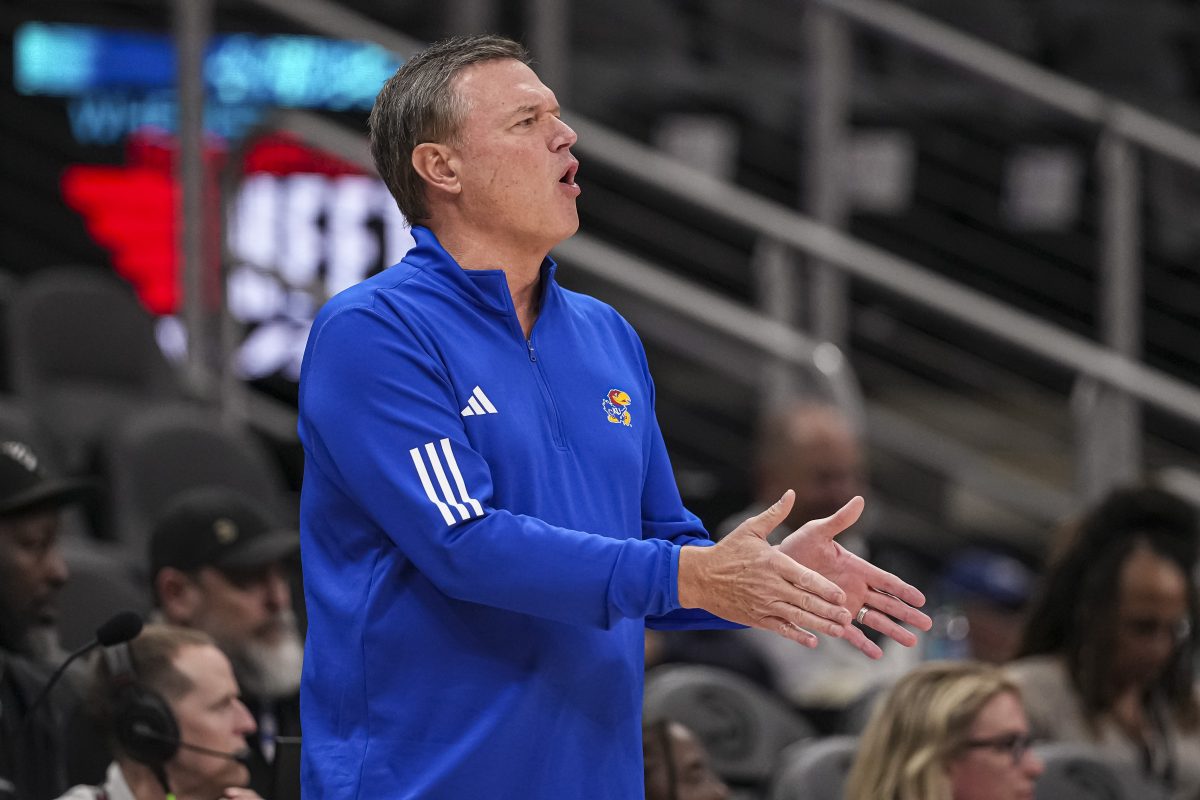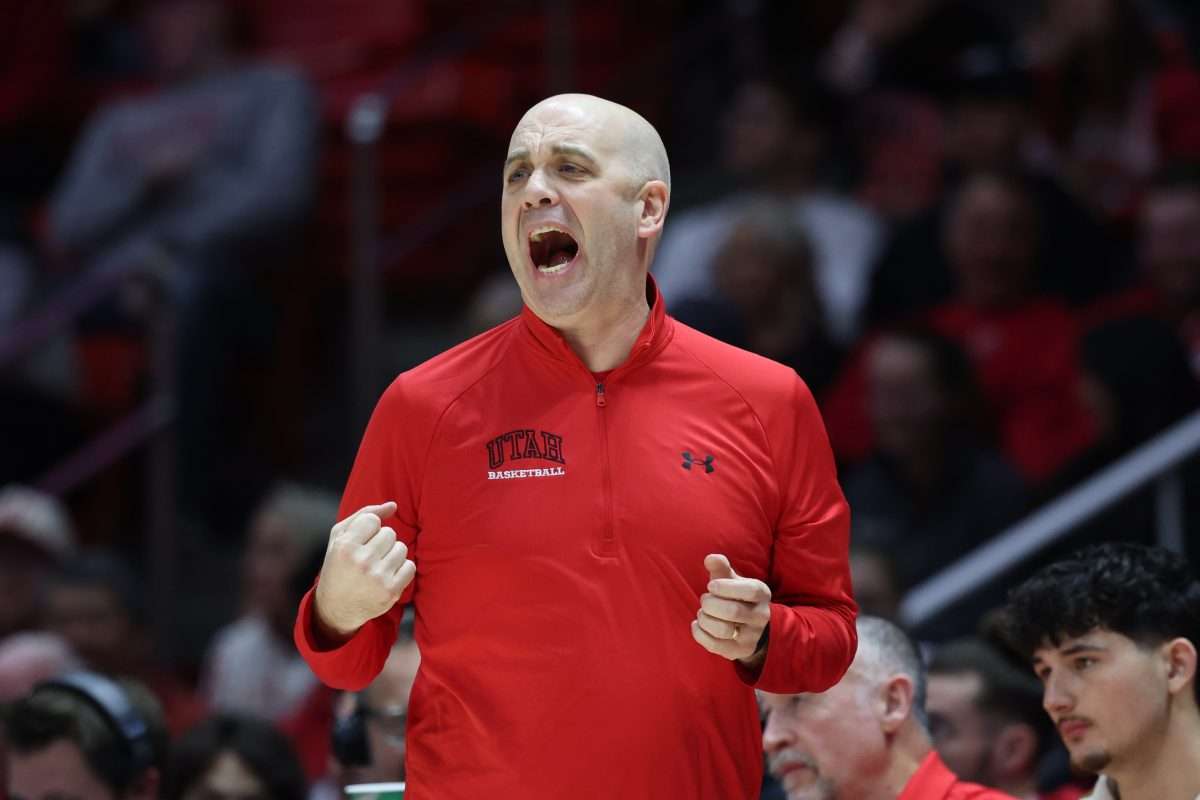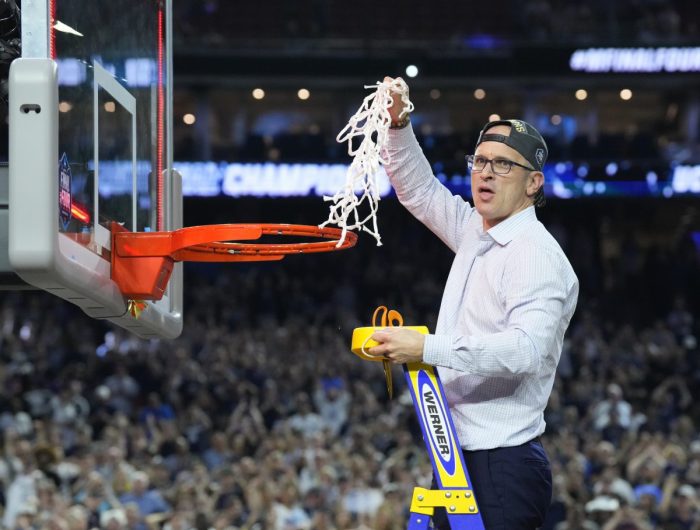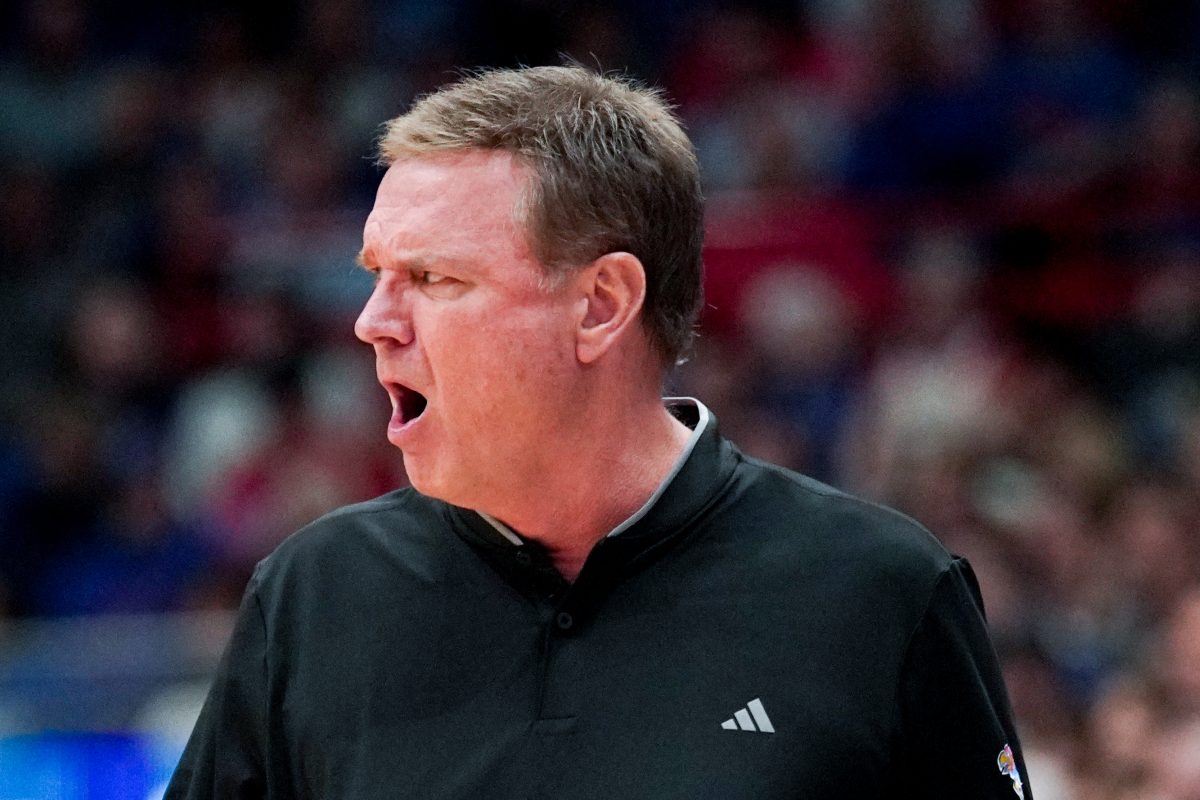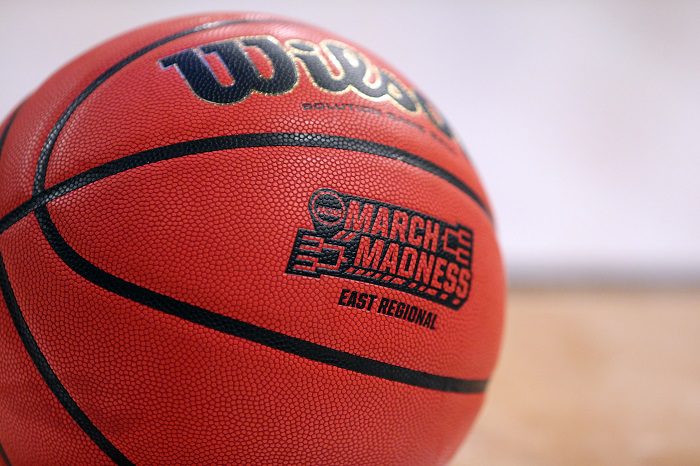What’s going on in the Big 12 and beyond? I expand and explain every Sunday in Postscripts at Heartland College Sports, your home for independent Big 12 coverage.
This week, let’s talk about what Zeke Mayo had to deal with on Saturday and why the NCAA is delaying the House opt-in date — for some schools.
WHAT FANDOM DOESN’T ENTITLE YOU TO DO
I can’t remember a time that I wasn’t a sports fan. I think back to the earliest when I can’t remember enjoying a game and I think I was probably five or six years old. For instance, I’m told by my parents that my first game as a child was a Detroit Lions game at The Silverdome. But I don’t recall it. I might have been three years old.
When I’m not writing about the Big 12 or Major League Baseball, admittedly, I’m watching other games. That’s what I do. I enjoy it. I do, at times, wish I had been talented enough to play one MLB game or one college basketball game in my lifetime. That’s not what I was blessed with athletically.
But basketball players like Kansas guard Zeke Mayo are blessed with that talent. The Lawrence, Kan., native didn’t start his career with the Jayhawks. But he transferred to KU this year and, for a kid that grew up down the street from Allen Fieldhouse, this season must in many ways feel like a dream.
I’m sure what happened on Saturday evening wasn’t part of that dream.
Kansas lost to Texas Tech, 78-73, on Saturday at Allen Fieldhouse. Mayo only scored five points in the game, and he shot an air ball 3-point attempt late in the game that could have tied the contest. He’s played well all season, but he is admittedly having a rough stretch, as are the Jayhawks as a whole.
Related: Five Biggest Takeaways From Saturday’s Big 12 Basketball Games
Mayo did what most young athletes do now after a game — he checked his phone. What he got on X (formerly Twitter) was a bunch of DMs that directed hateful and racist language at him for his play. Mayo shared screenshots of the DMs and we wrote about them Saturday night, as did a host of other sites. He has since deleted the post.
“I 100% deserve all the criticism in the world,” he wrote in the post. “My performance was beyond pitiful today, and has been for a while now. I work my ass off everyday to be great, but I can’t be perfect all the time. I’m sorry to our fans and my teammates, I will continue to get better.”
Later Saturday, coach Bill Self posted his own statement, which was as much about the game as it was about Mayo dealt with.
I’m not sure if Mayo was asked to take the post down or if he did it himself. But I have absolutely no problem with him calling out anyone who wants to direct hate or racism his direction. Do it in public. Call them out. There’s no place for it.
Being a sports fan isn’t that hard. Watch the game, enjoy yourself, get on the refs and support your team. Haze the other team, tastefully (looking at you Arizona fans after the BYU game last weekend). Rinse, repeat.
I follow my alma mater, Stephen F. Austin, closely. I go to games as much as I can. I went to Oregon with the team when they played the Ducks earlier this season. Sometimes what those players do frustrates me, I admit. Same with the coaches. But after the game my job is to shake their hand, tell them “good game” and thank them for representing my school, whether we win or lose.
The people that went after Mayo on social on Saturday, most likely, aren’t actual Kansas fans. I’ve met plenty of Kansas fans. Good people. They were likely bots or trolls, gamblers who lost money or just angry people who saw a chance to pile on another person when they were vulnerable and took it. They likely got satisfaction from it — until Mayo posted the screenshots.
I hope everyone saw the screenshots. I hope everyone memorized the usernames. I hope they are real people. And I hope they suffer the consequences of directing such hate at another human being.
Don’t come at me with the “Well, they get paid now argument.” That doesn’t fly with me. It’s still wrong. If any of these people really are connected to Kansas, such as season-ticket holders, they should be held to account.
You don’t get to treat other human beings like that just because they play a game, and you don’t. Your fandom, your ticket, your cable plan to watch games, your gambling stub, doesn’t entitle you to that. And it never will.
AN INTRIGUING HOUSE DELAY
So, if you’ve been keeping up with the House vs. NCAA settlement, you know that March 1 was supposed to be a big day. It’s the day that schools were supposed to inform the NCAA if they were opting-in or opting-out of revenue sharing. Well, as Ben Portnoy at SBJ pointed out, the deadline has been tweaked a bit.
Below is the release the NCAA sent out to institutions on Feb. 28, the DAY BEFORE the opt-in deadline. It’s still a deadline, but with a twist.
So let’s break this down. This is for “non-defendant” institutions. That means non-power conferences, which were involved in the suits that were settled. So, this doesn’t apply to the Big 12.
Most of the Big 12 schools have indicated they’re in on revenue sharing. Commissioner Brett Yormark has said on several occasions that he expects member schools to share at a “competitive level.”
The non-defendant schools don’t necessarily have the revenue to share at the highest level, which is expected to be $20 million or so. Some have already signaled they’re in. VCU plans to share $4-5 million, with an emphasis on basketball (VCU doesn’t play football).
So, yesterday — YES, YESTERDAY — those non-defendant schools were supposed to let the NCAA know what their initial lean is on revenue sharing. They’re not locked in to doing so, but the body is trying to get a head count. The list, per the NCAA won’t be made public. Because of course it won’t.
Then, those schools can fully opt in by June 15 — unless, of course, the settlement isn’t approved. The NCAA also reminded everyone that no benefits can be paid until July 1. Sure, Ok. Cool.
I’m not sure I’m smart enough to know what’s going on here. The NCAA and the settlement have been clear from the start — March 1 is the opt-in date. Now, it’s a softer date. Why? I have three hypotheses:
First, the non-defendant schools want to participate in revenue sharing in some way but need more time to figure out the “how.”
Second, the NCAA WANTS those schools to rev share, they’re not sure and the NCAA is giving them more time to say yes.
Third, the NCAA is waiting for the U.S. Senate to bail them out on NIL legislation and is trying to stall further.
As I mentioned, I went to SFA. I don’t know where our athletic director is at on revenue sharing but I don’t think an extra few months is going to change our school’s dynamics on revenue sharing because I simply don’t think we have the dough. Most non-defendant schools that play football don’t.
There are four months to figure all of this out. On April 7, a hearing will be held for final approval.
At that point, we may see a lot of moves happen, especially at the non-defendant level.
You can find Matthew Postins on Twitter @PostinsPostcard.

